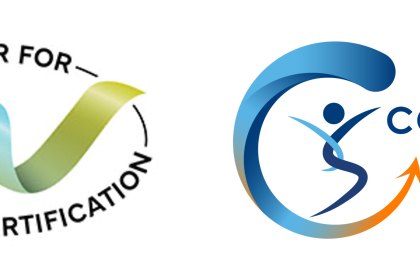
Introduction
Embarking on a career as a coach is more than living a passion for helping others—it’s also about ensuring that you are equipped with the applicable skills, knowledge, and credentials to be effective and respected in the coaching profession. Coach training and certification are crucial steps in establishing credibility and enhancing your professional standing. These elements boost your confidence as a coach and assure your clients that they are in capable hands. In this blog, we’ll explore the cons and pros of coach training, the importance of obtaining certification, and the benefits of becoming a credentialed coach.
Cons and Pros of Coach Training
It is fascinating that some question the value of coach training. After all, service professionals in other industries are expected to have specific training. Here is a push: how can a professional justify NOT being trained for the specific work they are doing? How do you feel about hiring someone who says they do not need to learn how to do what they are being hired to do?
When it comes to coach training, here are Cons:
- It takes time.
- It costs money.
- It is a challenge to figure out which training to take.
Here are Pros:
- Learn the competencies and ethics for the work you are undertaking.
- Acquire new tools and learn new techniques.
- Elevate your coaching skills.
Importance of Coach Training and Certification
In the ever-evolving world of coaching, where personal and professional transformation is the end goal, coach training and certification serve as essential pillars. These elements are not just formalities; they are profound investments in a coach’s credibility and capability. Understanding the importance of these aspects can markedly influence a coach’s effectiveness and success in the industry.
Benefits of Accredited Training Programs
Formal training programs for coaches are foundational. They delve deep into the essential skills and methodologies necessary for effective coaching. These programs are crafted to encompass a comprehensive curriculum that covers a range of important topics, including and not limited to, interpersonal communication, goal-setting strategies, and ethical guidelines. Here are some key benefits:
- Structured Learning Path: Formal training provides a structured approach to learning. It systematically covers all foundational areas of coaching, from understanding client objectives to implementing various coaching models and techniques effectively.
- Skill Enhancement: These programs are designed to enhance a coach’s innate abilities, sharpening skills such as active listening, empathy, questioning, and feedback-giving. This fine-tuning is crucial for facilitating meaningful client interactions and engagements.
- Practical Experience: Certified training programs incorporate practical, hands-on coaching sessions which are supervised by experienced coaches. This real-world application is invaluable as it helps the coach to navigate through actual coaching scenarios and learn from the experiences.
- Networking Opportunities: Participating in a training program opens numerous networking opportunities with peers. This network can be a significant resource for sharing best practices, getting referrals, and continuous learning.
- Credential Recognition: Completing a formal training program often leads to receiving a certification from a recognized coaching body. This certification acts as a testament to a coach’s dedication and knowledge, adding to their professional stature.
Ultimately, the structured and immersive nature of formal training equips future coaches with the confidence and expertise to handle diverse coaching situations effectively.
Impact of Certification on Client Trust
Certification plays a pivotal role in the coaching industry, primarily by influencing client trust and perception. In an industry where personal development and sensitive issues are key elements of the client-coach relationship, having a certification is a significant advantage. Below are several ways in which certification impacts client trust:
- Verification of Expertise: Certification serves as a stamp of approval from a professional body. For clients, this means assurance that the coach has met predefined industry standards and possesses a certain level of professional competency.
- Enhanced Credibility: When a coach is certified, it enhances their credibility in the eyes of clients. It also shows credibility among peers within the industry. It shows that the coach is committed to maintaining a high standard of ethical practice and continuous professional development.
- Builds Confidence in Clients: Clients are likely to feel more comfortable and confident in sharing personal or sensitive information with a coach who is certified. This level of trust is crucial for creating a safe and supportive environment where meaningful change can occur.
- Differentiation in the Market: In a busy market, being certified can help a coach stand out. It differentiates professionals who are serious about their careers from those who are not formally trained or certified.
- Promotes Professional Growth: Certification often requires ongoing education to maintain the credential. This requirement encourages coaches to continually update their knowledge and skills, that can benefit their practice, it also assures clients of their dedication to providing the best possible support.
By aligning themselves with globally recognized standards and continually striving for professional excellence, certified coaches elevate their own practice and contribute positively to the overall standards and perception of the coaching industry.
Value of Being a Credentialed Coach
Standing Out in the Coaching Profession
Achieving a credential in coaching isn’t just about adding a few initials after your name—it’s about setting yourself apart in a competitive field. Credentials serve as a testament to your commitment, expertise, and dedication to continuous improvement. They make you more attractive to potential clients who seek quality and assurance in their coach’s abilities. Furthermore, credentialed coaches often are preferred by organizations looking to ensure high standards in their coaching investments.
Opportunities for Advancement and Recognition
Being a credentialed coach opens doors to numerous advancement opportunities. With a recognized certification, you may be considered for senior coaching roles, invited to speak at industry conferences, or even write books and articles on coaching practices. Credentials often also lead to:
- Higher earning potential as you can command greater fees for your proven expertise.
- Increased client referrals due to established trust and credibility.
- Opportunities to mentor new coaches, thereby expanding your professional network and influence in the coaching community.
Consider: If you are hiring a professional to provide a service, what level of education or training and expertise do you want them to have? Chances are that prospective coaching clients want to know you care enough about the quality of your services to complete coach training and earn a credential.





